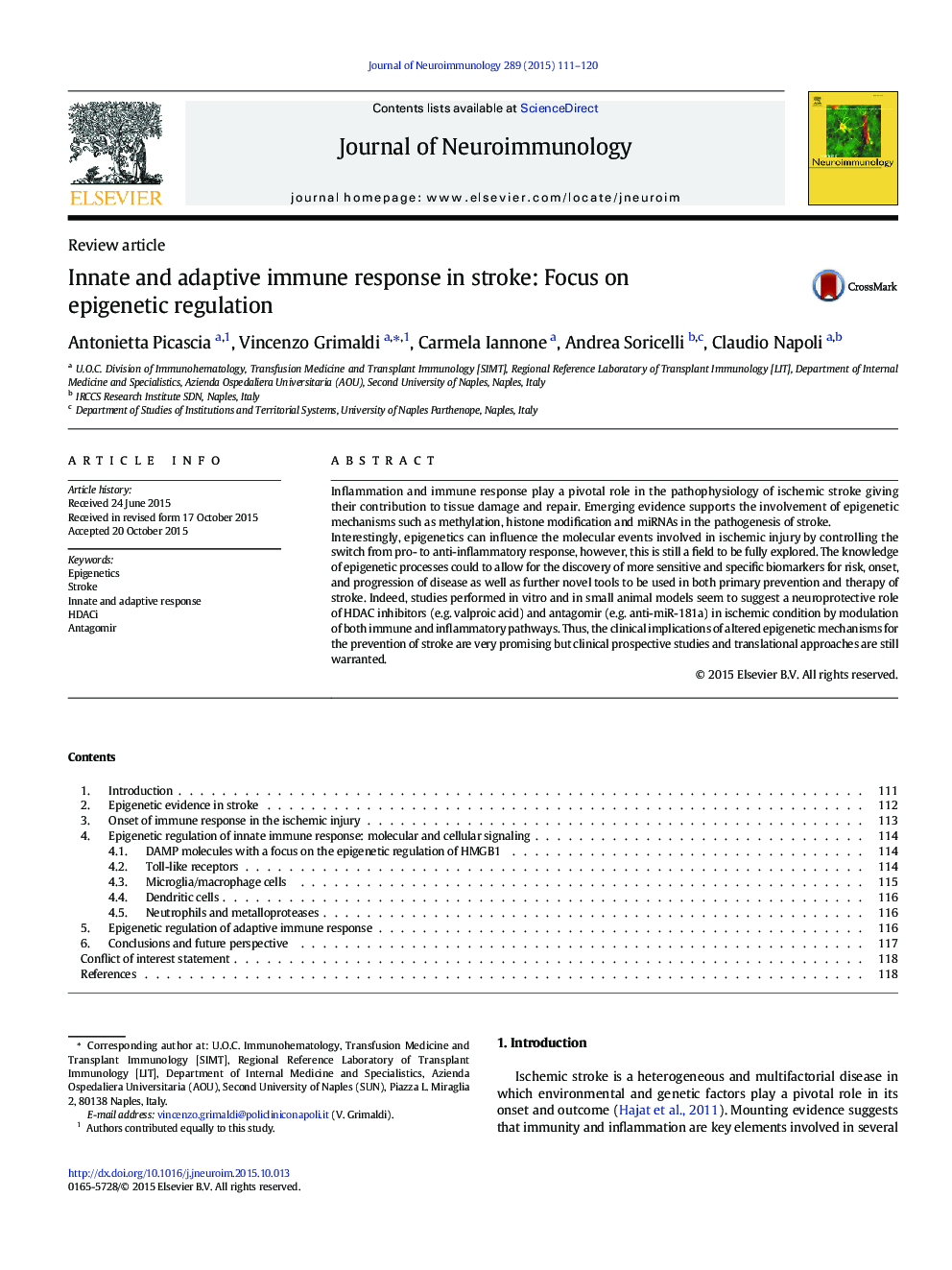| کد مقاله | کد نشریه | سال انتشار | مقاله انگلیسی | نسخه تمام متن |
|---|---|---|---|---|
| 3063866 | 1580385 | 2015 | 10 صفحه PDF | دانلود رایگان |
• Immunity and inflammation are key elements involved in ischemic damage.
• Epigenetic modifications influence the molecular events involved in ischemic injury.
• Further studies are needed to identify gene targets for epidrug development.
Inflammation and immune response play a pivotal role in the pathophysiology of ischemic stroke giving their contribution to tissue damage and repair. Emerging evidence supports the involvement of epigenetic mechanisms such as methylation, histone modification and miRNAs in the pathogenesis of stroke.Interestingly, epigenetics can influence the molecular events involved in ischemic injury by controlling the switch from pro- to anti-inflammatory response, however, this is still a field to be fully explored. The knowledge of epigenetic processes could to allow for the discovery of more sensitive and specific biomarkers for risk, onset, and progression of disease as well as further novel tools to be used in both primary prevention and therapy of stroke. Indeed, studies performed in vitro and in small animal models seem to suggest a neuroprotective role of HDAC inhibitors (e.g. valproic acid) and antagomir (e.g. anti-miR-181a) in ischemic condition by modulation of both immune and inflammatory pathways. Thus, the clinical implications of altered epigenetic mechanisms for the prevention of stroke are very promising but clinical prospective studies and translational approaches are still warranted.
Journal: Journal of Neuroimmunology - Volume 289, 15 December 2015, Pages 111–120
